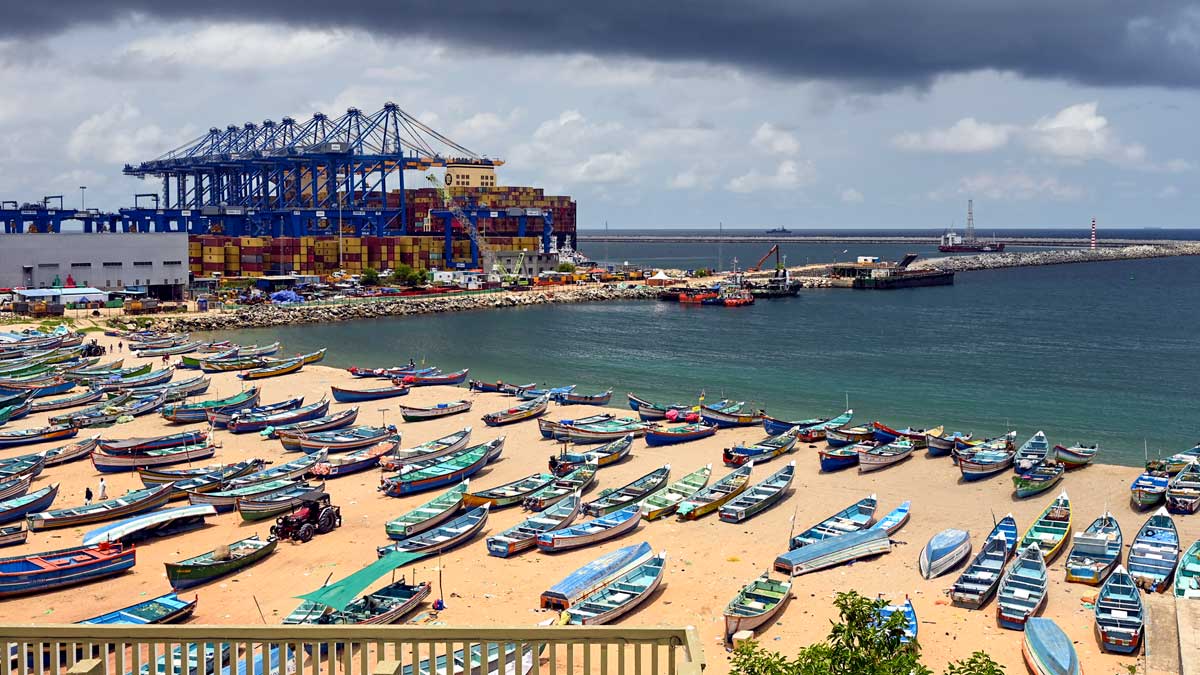How Vizhinjam Port is set to transform India’s maritime future
 Prime Minister Narendra Modi, on Friday, inaugurated the Vizhinjam International Seaport in Thiruvananthapuram district in Kerala. Built at an estimated cost of Rs. 8,867 crore, this marks the establishment of India's first deep-water container transshipment port.
Prime Minister Narendra Modi, on Friday, inaugurated the Vizhinjam International Seaport in Thiruvananthapuram district in Kerala. Built at an estimated cost of Rs. 8,867 crore, this marks the establishment of India's first deep-water container transshipment port.
Located merely 10 nautical miles from the bustling East-West international shipping lane, Vizhinjam Port allows vessels to dock without significant detours. It directly connects India to major global trade routes, establishing it as a prominent transshipment centre.
Strategically positioned near international shipping channels and equipped with advanced semi-automated technology, the port aims to reclaim a bulk of the cargo which otherwise gets routed via foreign ports.
Managing director of Adani Ports and SEZ Ltd Karan Adani stated that Kerala's Vizhinjam Port is "much better equipped" and will "promote the country's growth."
What does the port mean for India's trade?
• Currently, around 75 per cent of India's transshipment cargo is processed through foreign ports like Colombo, Singapore, and Dubai. Vizhinjam port aims to emerge as a significant transshipment hub, allowing the handling of Indian cargo domestically, which will lessen reliance on overseas ports and potentially save about $200-$220 million yearly.
• Constructed under a landlord model in combination with a public-private partnership (PPP), the strategic placement of Vizhinjam port near key international shipping routes, along with its deep natural draft, facilitates the accommodation of large mother vessels. This eliminates the need to transfer cargo to smaller ships at foreign ports, significantly lowering costs and making the port an important transshipment hub for cargo directed towards major markets such as East Asia, the United States, Europe, and Africa.
Vizhinjam Port is set to transform India's maritime trade with its strategic location, deep-water capabilities, and advanced infrastructure. It aims to cut costs, enhance efficiency, boost exports, create economic opportunities, and strengthen India's role in the global market.
The port will elevate India's influence in the Indian Ocean Region, counteracting China's presence in adjacent ports like Hambantota (Sri Lanka) and Gwadar (Pakistan).
Vizhinjam Port is poised to place India prominently on the global maritime landscape by functioning as a vital centre for trade and logistics, allowing the nation to attain a significant role in international commerce and trade.
Maritime